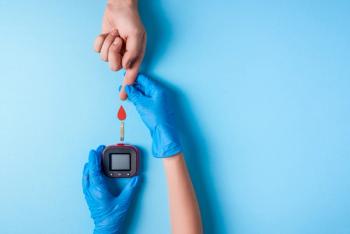
How Socioeconomic Factors Can Impact Depression Treatment
Home environments have a clear impact on depression treatment outcomes.
According to the results of a new study, individuals seeking treatment for depression with lower incomes, lower education levels, and those who identify as minorities tend to have worse outcomes even when receiving equal access to treatment.1 Jeffrey Mills, PhD, and Jeffrey Strawn, MD, led the University of Cincinnati cross-college collaborative research.
Investigators analyzed data from a large clinical trial, the Combining Medications to Enhance Depression Outcomes study, that enrolled 665 participants seeking treatment for depression. All participants had the same access to treatment without differences due to health insurance or income. The study also controlled for sex, age, and treatment type. Following 12 weeks of antidepressant medication treatment, participants who were nonwhite improved 11.3% less compared to white patients. Participants who were unemployed saw 6.6% less improvement compared to employed patients. Participants the 25th percentile of income distribution had 4.8% reduced improvement when compared to participants in the 75th percentile. Patients who were nonwhite, unemployed, without degree, and in the 25th income percentile had 26% less improvement compared to patients who were white, employed, with a college degree, and in the 75th income percentile.1
“We think about these things in terms of access, we think about them in terms of income inequality, and I realize that education does track with those, but just having a college degree while controlling for all of these other factors still had a significant impact,” said Strawn, professor in the Department of Psychiatry and Behavioral Neuroscience in UC’s College of Medicine and a UC Health adolescent psychiatrist.2
Strawn also noted that while the findings are still preliminary, results suggest that participants without a college degree had 9.6% less improvement compared to college graduates. Furthermore, previous research indicates that individuals seeking treatment for depression with lower income and less education have worse outcomes because of a lack of access to quality health care, but socioeconomic factors are hard to isolate.
Mills, professor of economics in UC’s Carl H. Lindner College of Business, said that the findings do not negate the fact that a lack of access makes an impact on treatment outcomes, but it does show the importance of including a patients’ home environment when analyzing the effectiveness of treatment.
“If you’re going home to a wealthy neighborhood with highly educated parents or spouse, then you’re arguably in a much better environment for the treatment to be effective than if you’re going to a poor neighborhood with other problems,” said Mills.2
Strawn believes future studies should consider socioeconomic variables that may have been previously overlooked.
“When we don’t control for these variables, which we often do not in our clinical trials because of differences in populations, we may miss detecting an effective treatment because its effect is obscured,” Strawn said. “It can potentially jeopardize our treatment development by not accounting for these factors.”2
Moving forward, the investigators want to combine data from other depression trials to produce more powerful results with a larger dataset.
References
1. Mills JA, Suresh V, Chang L, et al. Socioeconomic predictors of treatment outcomes among adults with major depressive disorder. Psychiatr Serv. 2022;appips202100559.
2. Socioeconomic factors affect response to depression treatment. News release. April 15, 2022. Accessed May 6, 2022.
Newsletter
Pharmacy practice is always changing. Stay ahead of the curve with the Drug Topics newsletter and get the latest drug information, industry trends, and patient care tips.























